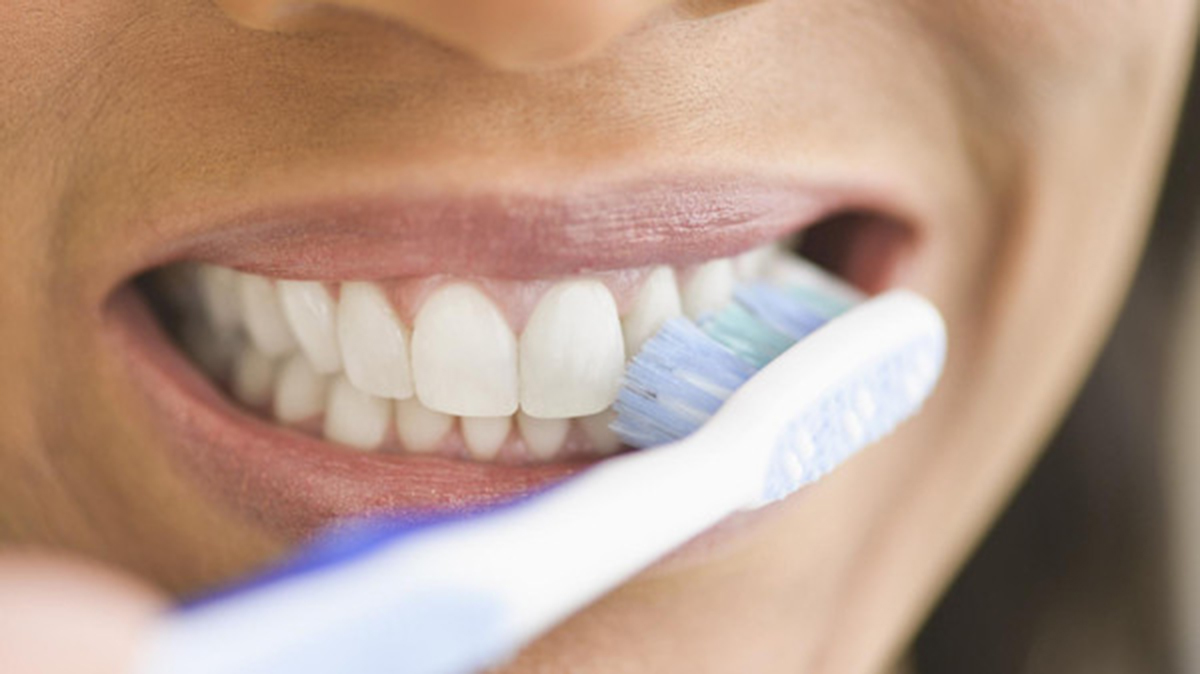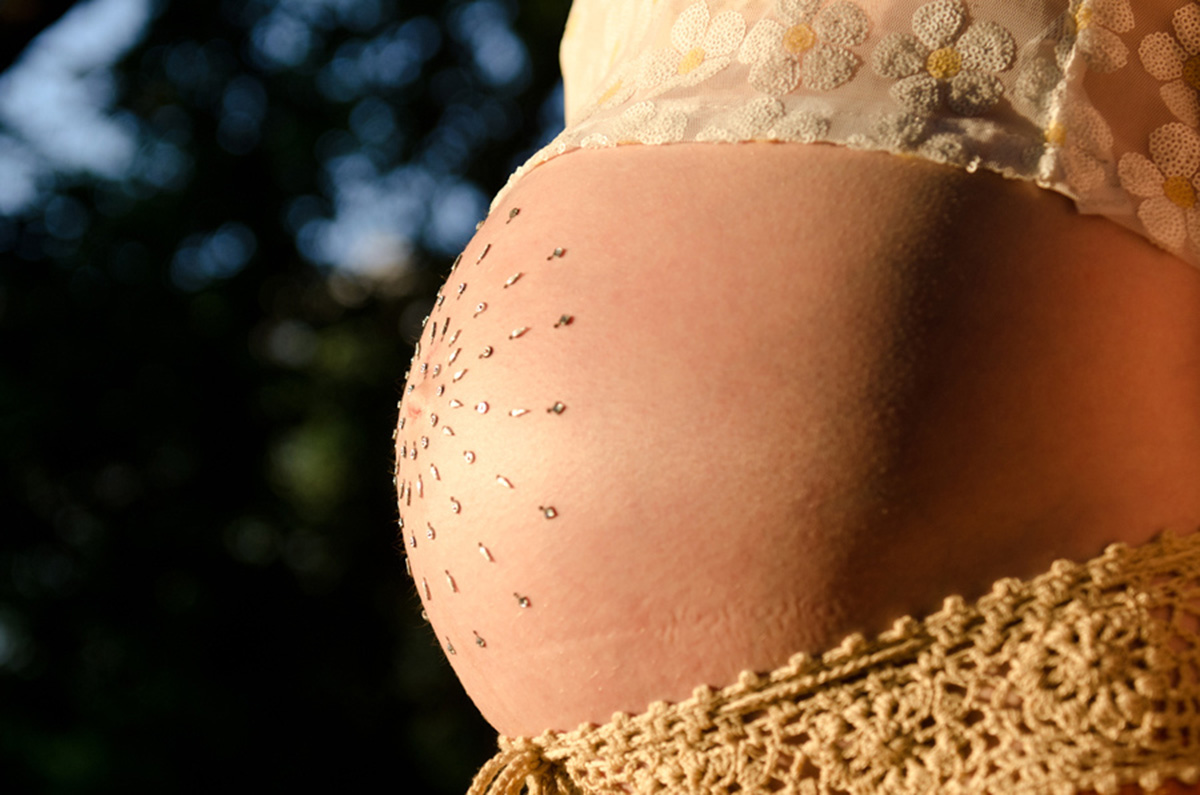The treatment of diseases during pregnancy is a challenge for medical practitioners. Most people are extremely wary of taking any sort of medication for fear that it may affect the developing fetus. Doctors, too will always have the potential side effects in the back of their mind, while a large number of procedures and medicines are outright not available to be used during pregnancy.

1. Bleeding From The Gums
Bleeding from the gums is one of the first signs of gingivitis. Since gingivitis is painless, seeing blood from their mouth during brushing, eating or even spontaneously is one of the first things that gets people rushing to the dentist. In pregnancy, certain changes take place in the gums. They include an increase in the vascularization of tissues. These newly formed blood vessels are immature and close to the surface and so extremely prone to bleeding.
It was earlier thought that since this is a physiologic change of the body during pregnancy there is no way that one can prevent it. Newer knowledge has shown that this bleeding can be prevented if the patient undergoes a scaling to remove the plaque from the surfaces of the teeth before planning pregnancy.
That is the reason that women who have never had issues with dental hygiene and gingival bleeding before in their lives start to experience them during pregnancy. In fact, this condition is referred to as pregnancy gingivitis. It will resolve on its own soon after childbirth as the hormonal levels return to normal.
2. Pregnancy Tumor
This ominous-sounding condition is actually completely harmless and quite common in pregnant women. A pregnancy tumor refers to a growth or a swelling seen on the gums. This condition can sometimes be mistaken for a peri-apical abscess or even a periodontal abscess as they can appear similar on clinical examination.
Depending upon the location and size of the pregnancy tumor your doctor may decide to excise it under local anesthesia or leave it as it is. This growth will automatically disappear a few days after child birth. One of the reasons why most clinicians prefer to leave the growth in its place is because these tend to recur in a large majority of the cases.
See Also: Complications Of Pregnancy You May Not Know About
The best way to prevent this condition from occurring is to go for a professional cleaning when you are planning to get pregnant and maintain good oral hygiene throughout your pregnancy.
Gum Disease: A Surprising Cause Of Premature Child Birth
3. Premature Childbirth
Gum disease is not the first thing that springs to mind when you are thinking of factors that might contribute to premature child birth. This however, is not a new idea. A link between systemic diseases and oral diseases has been postulated for years and was eventually discarded for a lack of sufficient evidence. New evidence has now been put forward in the scientific community in sufficient numbers to rethink this link.

This knowledge is now proliferating to more and more people in the public domain who are looking for an answer as to how they can prevent this from happening. If you do not suffer from periodontal disease then you probably do not need to worry about this at all, however if you have previously had trouble with your gums, then it is wise to have a thorough evaluation as you plan your pregnancy so that necessary treatment to get your gums back to normal can be given to you.
4. Bad Breath
Bad breath or halitosis is something that a lot of pregnant women suffer from. This particular affliction has a social stigma attached to it and thus can be quite troublesome for the person suffering from it. The cause behind this is the same hormonal changes that are going in the body and thus messing up the normal order of things.
An increase in estrogen in the body contributes to a qualitative change in the micro-organisms that are normally found in the oral cavity. These micro organisms are responsible for releasing certain toxins and compounds that cause a bad odor in the mouth.
The treatment for this might involve the use of a non-medicated mouthwash, flavored mints to help change the taste in the mouth as well as medication to help with the morning sickness.
Conclusion
Most of this conditions that a lot of women face during their pregnancy are easily avoided by following a regular oral hygiene protocol. Almost all of these conditions are associated with the presence of plaque in the oral cavity which becomes disease causing in the presence of altered hormonal conditions. Therefore, all of these conditions can be prevented by eliminating the plaque from your mouth.
See Also: Diabetes In Pregnancy: How To Avoid It
Since dentists avoid any sort of treatment during the first and third trimester, it is better to have an oral evaluation and professional cleaning done during the time you are planning pregnancy or taking treatment during the second trimester. The first trimester is the time when organ development is taking place and so any sort of treatment associated bacteremia is avoided, while there is a risk of inducing premature childbirth during the third.
- Photo courtesy of Mahmoud9725 via Flickr: www.flickr.com/photos/121843045@N05/13518727185
- Photo courtesy of Alenka_getman via Flickr: www.flickr.com/photos/8255045@N03/9199018355
- Photo courtesy of Alenka_getman via Flickr: www.flickr.com/photos/8255045@N03/9199018355
- Photo courtesy of Mahmoud9725 via Flickr: www.flickr.com/photos/121843045@N05/13518727185
- 1. http://www.webmd.com/oral-health/dental-care-pregnancy
- 2. http://oralb.com/en-us/oral-care-topics/dental-hygiene-during-pregnancy
- 3. http://www.knowyourteeth.com/infobites/abc/article/?abc=g&iid=325&aid=7586


Your thoughts on this